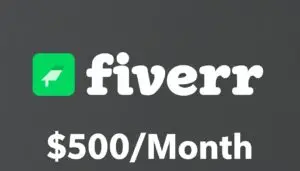You started your blog with a spark of passion, sharing ideas, stories, or expertise. Maybe you dream of reaching more people, or perhaps, you want to turn that passion into a real income stream. Many folks think blogging is just a hobby, something that doesn’t really pay the bills. But that’s not true at all.
With smart choices and a bit of effort, your blog can become a powerful source of income. It can support your lifestyle or even become a full-time job. We’re talking about diverse methods here, from easy passive income to active client work. Get ready for practical tips on how to make money from your blog.
Section 1: Leveraging Your Content Directly
Affiliate Marketing
Affiliate marketing means you promote products or services from other companies. When someone buys something through your special link, you earn a commission. It’s a popular way for bloggers to make money without needing their own products.
Choose affiliate programs that truly fit your blog’s topic. If you write about hiking, link to hiking gear you love. Always write honest reviews and comparisons. Your readers trust your opinion. Be sure to tell your audience clearly when you use affiliate links. Transparency builds trust. For example, a travel blogger often links to hotel booking sites like Booking.com. They might also share links for specific luggage or travel insurance.
Selling Digital Products
Creating and selling your own digital products can be very profitable. Think about eBooks, online courses, printable planners, or handy templates. These products have low overhead and high-profit margins. Once you create them, you can sell them many times over.
Figure out a problem your audience needs to solve. Is it learning a new skill, organizing their life, or finding quick recipes? Create high-quality, valuable products that truly help them. You can use platforms like Gumroad, Teachable, or sell directly from your website. A food blogger could sell a unique recipe eBook, or a productivity blogger might offer a printable daily planner.
Sponsored Posts & Reviews
Brands will pay bloggers to create content that features their products or services. This could be a blog post, a review, or a mention within a larger article. It’s a direct way to earn money by collaborating with companies.
Build a strong brand and a loyal, engaged audience first. Brands want to reach your readers. Make a media kit that shows your blog’s traffic, reader demographics, and social media stats. Then, pitch relevant brands that align with your blog’s values. You can also join influencer networks to find opportunities. As one expert noted, “Authentic sponsored content truly connects with consumers.”
Section 2: Advertising & Display Revenue
Understand AdSense policies to keep your account in good standing. Place ads where they won’t annoy your readers but are still visible. Good ad placement balances user experience and revenue. The main thing is to get more visitors to your blog. More traffic means more ad impressions, which means more money. Earning potential varies widely, often ranging from a few cents to several dollars per thousand views depending on your niche.
Premium Ad Networks
Once your blog grows, you can join higher-paying ad networks. Companies like Mediavine and AdThrive offer much better revenue rates than AdSense. They also provide more control over ad types and placements. These networks usually need a certain amount of traffic each month.
Focus on steadily growing your blog’s audience. Aim to meet the minimum traffic requirements for these premium networks. For example, Mediavine often requires 50,000 sessions per month. Learn how to use their ad management tools to get the best results. These networks work hard to get you the highest ad rates.
Direct Ad Sales
Instead of using an ad network, you can sell ad space directly to businesses. This gives you full control over pricing and the types of ads shown. It can also lead to higher profits because there’s no middleman.
Create an “Advertise With Us” page on your blog. This page should list your ad options, prices, and audience data. Proactively reach out to businesses that would benefit from reaching your readers. Offer different ad sizes, banner placements, or even custom packages.
Section 3: Membership & Community Building
Paid Memberships/Exclusive Content
You can offer premium content or special community access for a recurring fee. This creates a steady income stream from your most dedicated readers. It rewards your loyal audience with extra value.
Develop unique, high-value content only for members. This could be in-depth guides, private webinars, or Q&A sessions. Use platforms like Patreon or MemberPress to manage your memberships. Focus on building a strong sense of community. A photography blogger might offer exclusive editing tutorials and private forums for their paying members.
Online Courses & Workshops
Create and sell online courses that teach your audience a specific skill. Courses allow you to share your deep knowledge and provide immense value. They can be very lucrative for experts in any niche.
Outline your course curriculum based on what your audience wants to learn. Use a mix of video, text, and interactive elements to make learning engaging. Market your course effectively to your blog readers through emails and blog posts. A personal finance blogger could create a comprehensive course on budgeting and investing for beginners.
Paid Newsletters
Platforms like Substack or ConvertKit make it easy to offer premium email newsletters. Subscribers pay a fee to receive exclusive content directly in their inbox. It builds a very direct relationship with your audience.
Provide unique insights, deep dives, or curated content that isn’t available anywhere else. Offer a free tier for your newsletter to attract new subscribers. Then, hint at the amazing value in your paid content. This builds curiosity and encourages upgrades.
Section 4: Offering Services & Expertise
Freelance Writing/Content Creation
Your blog is a fantastic portfolio to attract freelance writing opportunities. It shows off your writing style, expertise, and ability to connect with an audience. This means you get paid for your writing skills.
Showcase your very best blog posts on a dedicated portfolio page. Create a clear “Hire Me” page that details your services and rates. Network with editors, content managers, and other businesses who need writers. Your blog proves you can deliver quality.
Coaching & Consulting
If you have specialized knowledge, offer one-on-one coaching or consulting services. Your blog acts as a credibility builder, showing your expertise to potential clients. This can be a high-ticket income source.
Clearly define your coaching packages and pricing. Use your blog to share your success stories and establish yourself as an authority. Offer free discovery calls to potential clients so they can learn more about how you can help them. For example, a business blogger might offer consulting services to small startups needing growth strategies.
Speaking Engagements/Webinars
Your blog can open doors to paid speaking gigs or hosting paid webinars. Sharing your insights at events or online can boost your authority and bring in revenue. It’s a great way to meet your audience face-to-face.
Build a strong personal brand and practice your public speaking skills. Develop compelling presentation topics that resonate with your niche. Promote any upcoming speaking engagements through your blog and social media. People will want to hear what you have to say.
Section 5: Diversifying Your Income Streams
Creating & Selling Physical Products
Consider selling merchandise, printed books, or other niche-specific physical products. This allows your audience to physically engage with your brand. Think about what your readers might want to buy.
You can use print-on-demand services for things like t-shirts or mugs, which avoids holding inventory. Design products that clearly connect with your blog’s brand and message. Promote these products through your blog content, showing how they fit your lifestyle or niche.
Creating a Job Board
If your blog serves a specific industry, creating a niche job board can be a smart move. You can charge companies a fee to post their job openings. This provides a valuable service to both employers and job seekers.
Identify a very specific industry or profession your blog caters to. Partner with relevant companies in that field. Market the job board directly to your blog’s audience. They are already interested in your niche.
Donations & Crowdfunding
Some readers simply want to support content they love. You can offer options for them to make direct donations or contribute through crowdfunding platforms. This relies on the goodwill of your loyal followers.
Use platforms like PayPal, Buy Me a Coffee, or Ko-fi to accept donations. Clearly explain why reader support helps your blog continue to thrive. You might even offer small perks, like a special mention or early access, for those who donate.
Licensing Your Content
If you create high-quality images, videos, or articles, other publications or businesses might want to license them. This means they pay a fee to use your content. It’s a good way to earn money from your existing assets.
Clearly state your content licensing terms on your website. Be open to inquiries from potential licensees. Protect your intellectual property with clear copyrights. Your unique content holds value.
Creating a Private Community/Mastermind
For your most dedicated and high-level audience members, create an exclusive private community. These “masterminds” offer high-value networking, advanced discussions, and expert access. They can command a premium price.
Focus on bringing together a select group for high-level networking and collaboration. Charge a premium price for access, reflecting the high value provided. Carefully curate members to ensure a good fit and productive environment.
Selling Services to Other Bloggers
You’ve learned a lot about running a successful blog. Why not offer those skills to other bloggers? Think about SEO audits, social media management, website design, or blog coaching. There’s a big demand for these services.
Showcase your own blog’s success and results. Network actively within the blogging community. Offer specialized services that help fellow bloggers grow their platforms. You’re already an expert.
Hosting Paid Webinars or Virtual Events
Expand beyond courses to offer one-off paid educational or networking events. These could be live webinars, virtual workshops, or even multi-day online summits. People pay for direct access to expert knowledge.
Choose an engaging topic that solves a clear problem for your audience. Promote the event heavily to your email list and social media followers. Ensure a high-quality delivery with good interaction and clear takeaways.
Creating and Selling Templates or Presets
Many people need ready-made solutions to save time. Think about social media templates, graphic design elements, photo editing presets, or document templates. These digital assets are easy to create and sell repeatedly.
Figure out what common needs exist in your niche. For example, a graphic designer might sell Canva templates. Offer them for sale directly on your blog or on digital marketplaces like Etsy. Provide simple tutorials on how to use them effectively.
Affiliate Marketing with Physical Products
While we mentioned affiliate marketing, specifically think about physical goods. Programs like Amazon Associates let you link to millions of products. This is great for review sites or gift guides.
Write detailed product reviews, including unboxing videos if possible. Create gift guides for different occasions or product roundups comparing similar items. Always use high-quality product images to make your content more appealing.
Selling Stock Photos or Videos
If your blog often features original visual content, you can license your photos or videos. Platforms like Shutterstock or Adobe Stock let you sell your media for others to use. It’s another way to make money from your creative assets.
Upload high-quality, marketable visuals to stock platforms. Make sure to optimize your descriptions and tags so people can find your work. You can also promote your own stock assets on your blog to drive sales.
Lead Generation for Businesses
You can partner with businesses to generate qualified leads for them through your blog. This means collecting contact information from potential customers who are interested in a specific product or service. You then pass these leads to the business for a fee.
Create landing pages or opt-in forms on your blog that relate to specific offers from your partners. Always be transparent with your audience about how their data is used. Negotiate payment per lead or a flat fee for a certain number of leads.
Creating a Premium Resource Library
Gather a collection of valuable resources behind a paywall. This could include checklists, exclusive templates, in-depth guides, or research documents. It’s similar to a membership but focuses on a curated collection of assets.
Curate or create unique, high-value assets that solve common problems. Use a membership plugin on your website to manage access. Continuously add new resources to keep subscribers engaged and retain them over time.
Monetizing with Your Expertise (Beyond Courses/Coaching)
Your knowledge is valuable in many forms. Think about creating paid challenges, bootcamps, or virtual summits. These are intensive, time-limited programs designed for specific outcomes. They offer quick, focused learning.
Identify a specific skill or outcome your audience truly desires. Structure it as an intensive, results-oriented program. Consider collaborating with other experts. This can bring a broader audience and diverse perspectives.
Conclusion
We’ve covered 25 powerful ways to make money from your blog. From affiliate sales and digital products to services, ads, and exclusive communities, the options are vast. Success really comes from knowing your audience inside and out. It’s about giving them immense value and choosing methods that align with your blog’s topic and your brand.
Don’t be afraid to experiment. Try out different monetization strategies. Find what truly resonates with your readers and your passion. Your blog can become a thriving business, turning your love for writing into a sustainable income. Start building your blog’s financial future today.





Great tips on monetization! What I find interesting is how important transparency is with affiliate links. I’ve noticed that my audience respects the honesty, even if it means saying ‘no’ to some partnerships that aren’t a good fit.
Thank you so much for sharing your experience! You’re absolutely right—transparency really does go a long way. Being upfront about affiliate links not only builds trust but also shows your audience that you genuinely value their experience over a quick commission. It’s refreshing to hear how you’re selective with partnerships too—that kind of integrity truly sets the foundation for long-term success. Keep it up!
I love how the post emphasizes the power of affiliate marketing, especially when it aligns with your blog’s niche. Transparency is key, and when you genuinely recommend products you believe in, readers can sense that authenticity.